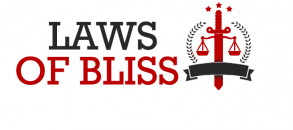
Probate can be explained as the legal procedure of handing out a deceased person’s estate after they have passed away. Usually, according to the probate court, An estate gets probated after a person dies without leaving behind any Will. In that case, we can also call it dying intestate, in which the deceased person’s estate will get distributed among their close ones per the rules and laws of the religion where the death occurred. On the other hand, if a person has left this world leaving behind a Will with all his wishes, the estate will get probated according to every detail mentioned in that Will.
Factors of Probate Costs
The cost of probate in NSW and the time needed to probate an estate highly depend on some factors. Because every deceased’s probate case has different factors, the time and cost also vary as per the complexity of these factors. So, because understanding and learning about the cost and time needed to complete the entire probate process is necessary, you must have the right knowledge of the factors. It will help you evaluate your probate case and find whether it is easy or complex. Here are some of the factors that may influence the cost and length of time to probate an estate –
1. The size of the estate
Estate size highly influences the timeline of a probate case. If the estate is large enough, it will take time to wrap up the entire estate distribution process. This is because several assets call for more time requirements to evaluate the value, followed by equal and legally right distributions. So, the larger the probate, the longer the time needed to complete the procedure.
2. Will Contests
It is a common factor that brings complexities in the process of probate in Australia. If a relative or anyone challenges the Will of a deceased person, it results in further litigation of the case, which extends the completion time. A Will is generally contested based on undue influence, fraud, or mental capacity. The person who brings in the contesting angle is usually a beneficiary of a private Will or someone supposed to have inherited from the deceased. Will contests not only require more time but increase the probate costs as well.
3. Creditors
The statements the creditors give are another aspect that changes the dynamics of a probate case and the cost of probate in NSW and timeline. Whenever a person leaves this earth and the probate case arrives, every creditor is subject to get notified about the same. Every creditor can present documents related to the amount the deceased owed them before leaving. As per the estate laws, the creditors get paid through the deceased’s estate. If the deceased has many creditors and the amount gets disputed, the probate case might cost more and require an extended period.
Types of Cost
When it comes to probating an estate, there is no one fee. While it’s possible that when it comes to probating an estate, legal fees are what most people likely picture first, the following are some additional frequent and related costs:
1. Court Costs
The first cost you will have to incur is opening a probate case. The cost of simplifying a cost of probate in NSW varies from state to state. Although, the initial cost of filing the probate case requires only a few hundred dollars. The rest of the cost depends on the factors mentioned above.
2. Executor and Administrator Fee
An executor can be defined as a person who administers the Will and charges for the same. In contrast, an administrator plays quite a similar role in a probate in Australia case. The difference between an executor and an administrator is that the court chooses the administrator to probate an estate when the deceased dies intestate.
The cost of the executor and the administrator is subject to compensation for their contribution to the probate process. So, that needs to be fulfilled for the proceeding of a probate case. The fee of the executor and the administrator depends and varies from case to case; it may be mentioned in the Will or may get decided by the probate court.
3. Fee of the Attorney
The attorney fee is something that not everybody has to pay. It all depends on whether you want someone to assist you with expert guidance during the entire probate process. If you want the probate process to go smoothly, you may hire a probate consultant and an attorney, for which you will have to pay the fees.
4. Accounting Costs
If the estate size mentioned in the Will or left behind by the deceased is big, you may need to hire an accounting professional to help you with the accounts. The larger the estate, the higher the accounting expert’s fee. It may also involve the preparation of tax returns of the estate. Whereas, if the estate size is smaller, you will not require any attorney because the probate court will handle it according to the laws.
5. Bond Fee
When an executor or administrator comes into the probate case picture, he is responsible for posting a bond with the court. This bond caters to protecting the people related to a probate case. It includes the beneficiaries and the creditors, too. If the executor or any personal representative poses any wrongdoing, people related to the probate estate and the process will be protected.
Connect with Probate Consultants and Get Your Queries Solved
A good awareness of expenses is critical in the field of probate. These variables, ranging from court costs to administrative charges, jointly define the financial picture. Armed with this knowledge, individuals may proceed cautiously through probate, obtaining legal guidance and making educated judgements. Recognising the potential financial consequences enables one to navigate the process quickly and ensure that the estate’s resources are managed wisely.




